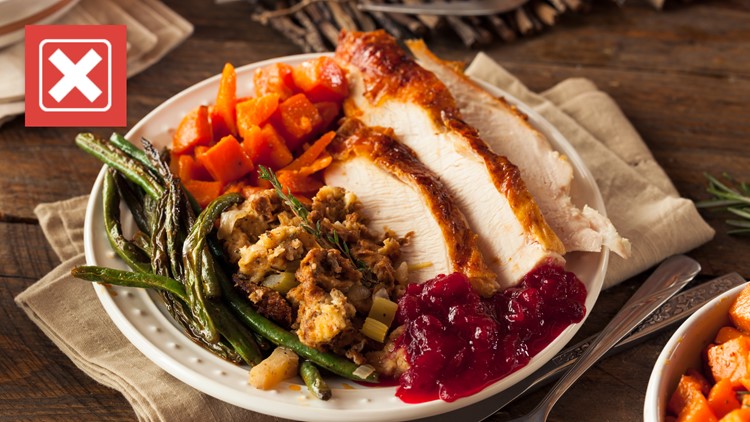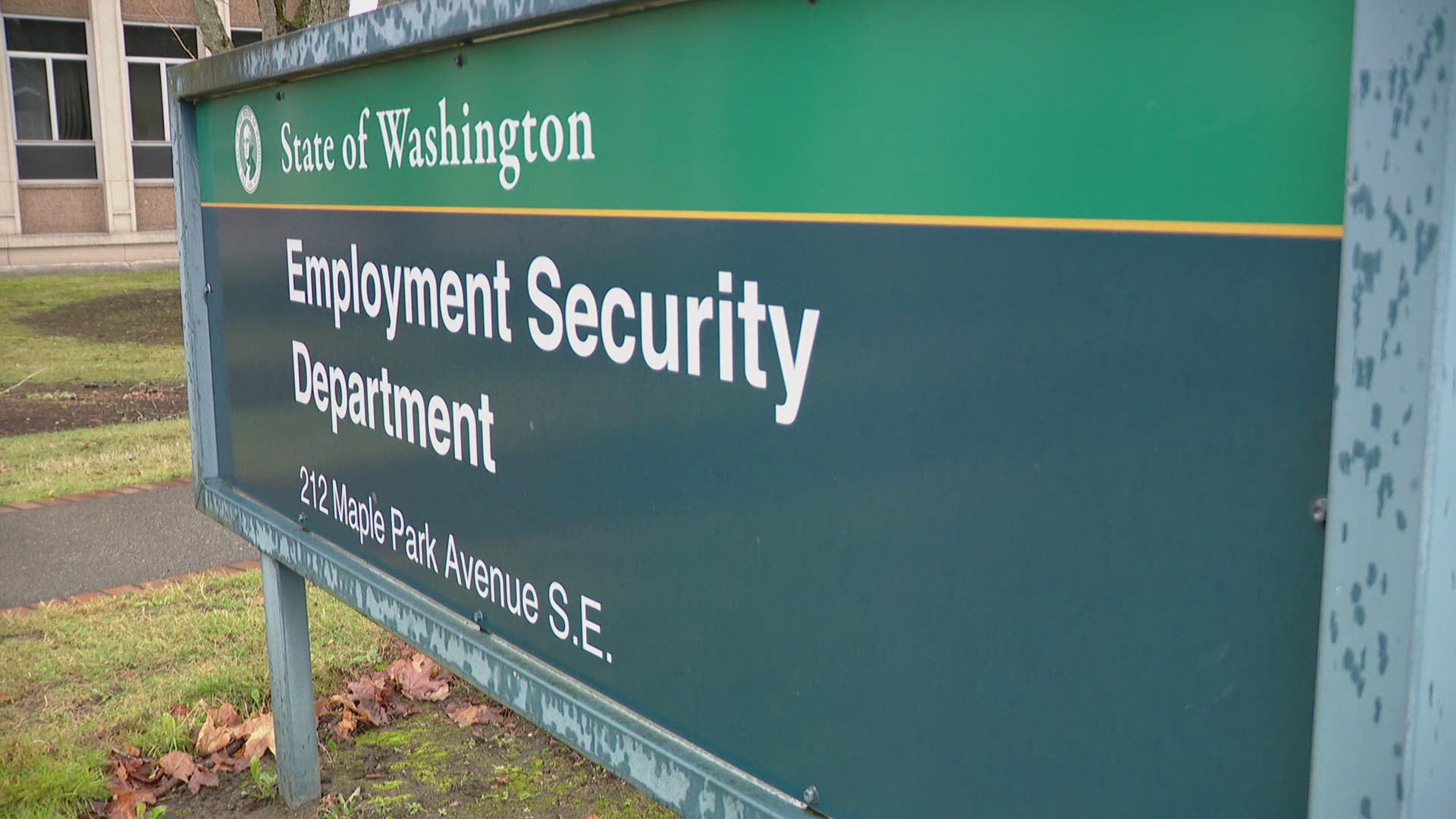On Thanksgiving, millions of Americans gather around the dinner table with their family and friends to give thanks and dig into a massive holiday feast. After eating a plate (or two) filled to the brim with turkey, stuffing, mashed potatoes, bread, pie and more, many people are usually ready to take a much-needed post-meal nap.
Turkey is often blamed for the drowsiness that comes after indulging in such a large meal because it is packed with tryptophan, but the VERIFY team looked into whether eating turkey really makes people ready to nap or not.
THE QUESTION
Does eating turkey make you sleepy?
THE SOURCES
THE ANSWER
No, eating turkey does not make you sleepy.
WHAT WE FOUND
Tryptophan is an essential amino acid needed for the production and maintenance of the body's proteins, muscles, enzymes and neurotransmitters, according to MedlinePlus, the U.S. National Library of Medicine’s online information service. It says the body uses tryptophan to help make melatonin, a hormone that helps regulate the sleep-wake cycle, and serotonin, a hormone that helps regulate appetite, sleep, mood and pain.
Ochsner Health, southeast Louisiana's largest not-for-profit healthcare system, says it’s not fair to blame the turkey for prompting people to want to take a post-Thanksgiving meal nap. In fact, the healthcare system says while it’s true that turkey does contain tryptophan, the claim that eating turkey makes people sleepy is nothing more than an old myth, explaining that the amount of turkey a person would have to eat to induce sleep is not available at most family gatherings.
The University of Pittsburgh Medical Center (UPMC), which also calls the claim a myth on its website, says while tryptophan can help people relax, it isn’t the only amino acid in turkey. According to the medical center, the other amino acids in the poultry reduce the amount of tryptophan that reaches the brain. Instead, it says eating carbohydrates can cause a person’s body to release insulin, which removes non-tryptophan amino acids from the blood. UPMC says other foods, including dairy products, nuts, seeds, and even tofu, also contain tryptophan, so if tryptophan caused drowsiness, people would feel groggy after eating just about any protein.
Ochsner Health and UPMC both say eating lots of carbohydrates, drinking alcohol and relaxing on the couch on Thanksgiving are the real culprits that cause that post-meal nap.
“Let’s face it, at the end of any big meal (Thanksgiving or otherwise), we all tend to feel a bit fatigued. This is because digesting large amounts of food is hard work for your body – especially large amounts of carbohydrates. Overeating causes a shift in energy, instead of using energy for activity our body is using all our energy for digestion,” Ochsner Health says.
To beat the drowsiness that comes with eating a lot of food on Thanksgiving, the Johns Hopkins All Children’s Hospital recommends:
- Eating small, healthy meals throughout the day before sitting down for the big meal
- Eating small portions of foods that are part of the Thanksgiving meal
- Drinking water and taking breaks while eating
- Stop eating once you're full
- Taking a walk outside afterward to help digest your meal



